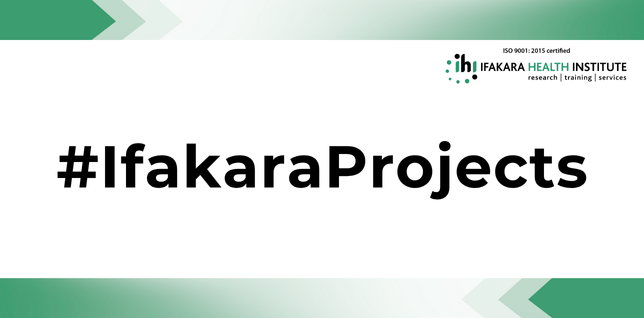
KICK-OFF: Ifakara, partners to implement three health projects in Tanzania

The Ifakara Health Institute (IHI) in collaboration with partners, has recently launched three new projects addressing critical health issues in Tanzania. These initiatives focus on improving care for heart failure patients, supporting adolescent sexual and reproductive health, and improving maternal nutrition. Together, they underscore Ifakara’s mission to improve health outcomes across the country.
Study on Heart Failure Care in Rural Tanzania
This clinical study implemented by Ifakara, aims to evaluate the effectiveness of a drug called Sacubitril-valsartan in improving the health status of symptomatic patients with heart failure with reduced ejection fraction (HFrEF) in rural Tanzania. The study is a collaboration with Swiss TPH and is being conducted at St. Francis Regional Referral Hospital in Ifakara.
Ifakara’s Samuel Salvatory, the study’s Principal Investigator, explained that the study will test whether patients who receive the drug of sacubitril/valsartan can improve their quality of life, heart function, and physical fitness.
“This treatment has not been widely tested in African populations, except for a few cases in South Africa,” added Salvatory. “Our study will provide important local data and help doctors make better decisions for heart failure care in Tanzania.”
The 30-month study will involve 238 patients and will also train local healthcare workers in managing heart failure, strengthening local clinical research, and providing evidence that can guide future treatment policies.
More about the project here.
Kijana Imara Project: Improving Adolescent Health
Ifakara has been commissioned to conduct a baseline evaluation for the five-year Kijana Imara project (2024–2029), led by UNICEF and UNFPA with funding from Global Affairs Canada. The project aims to improve the health, wellbeing, and rights of adolescent girls and boys in Tanzania and Zanzibar.
The baseline study which is funded by Hera, will establish starting points for key indicators, identify factors that could help or hinder the project, and provide lessons to guide future activities.
During the project kickoff, Dr. Sally Mtenga, Ifakara seasoned scientists and Principal Investigator, noted, “For adolescents to thrive, they need support across four domains—health, social, education, and economic assets. This project addresses all four to empower youth effectively.”
Dr. Sally also outlined the project activities, which will include:
- Training and supporting frontline workers and sub-national authorities in delivering rights-based, gender-responsive, adolescent-friendly sexual and reproductive health and nutrition services.
- Providing adolescents with information, support, and opportunities for participation and economic empowerment.
- Engaging parents, caregivers, community leaders, and men and boys to address social norms.
- Supporting government institutions, civil society organizations, and community health workers to strengthen policies, systems, and adolescent-relevant data collection.
Learn more about the project here.
Roadmap Development for MMS and Low-Dose Calcium Scale-Up in Tanzania
Ifakara will support the Government of Tanzania in developing a roadmap to scale up multiple micronutrient supplementation (MMS) for pregnant women and introduce low-dose calcium as part of the recommended maternal nutrition essential services delivered through antenatal care in Tanzania. Funded by the Bill & Melinda Gates Foundation, the project will run from July 2025 to October 2027.
The roadmap will focus on updating policies and guidelines, mapping stakeholders, improving monitoring and supply chain systems, and planning financing.
Ifakara scientist and project leader, Dr. August Joachim, who presented the project, said, “By strengthening maternal nutrition services and expanding access to essential supplements, we can significantly reduce health risks for mothers and babies across Tanzania.”
Consortium partners in the project include Africa Academy for Public Health (AAPH), Muhimbili University of Health and Allied Sciences (MUDHAS) and Tanzania Food and Nutrition Center (TFNC).
More about the project here.
These three projects show Ifakara’s commitment to improving healthcare in Tanzania—from saving lives of heart failure patients, empowering adolescents, to ensuring better nutrition for pregnant women.
